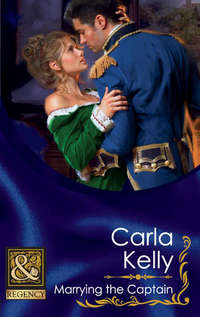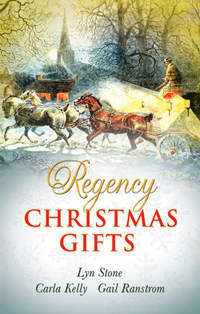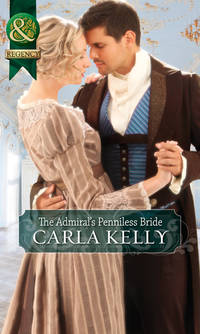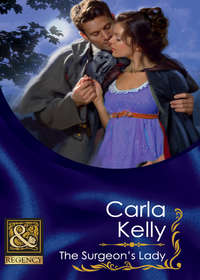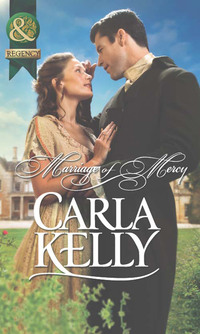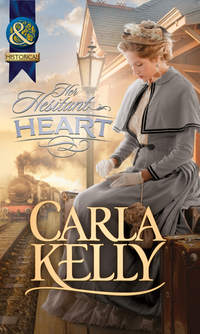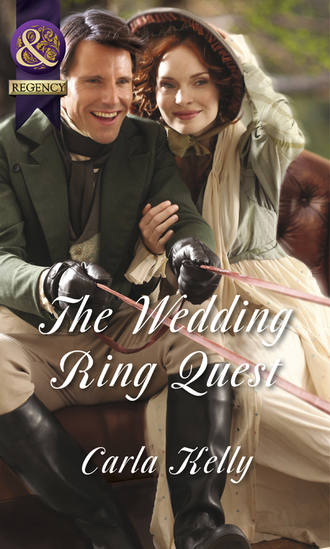
Полная версия
The Wedding Ring Quest
‘And so I came to Edinburgh,’ Mary informed the ceiling, that night of her epiphany. ‘They are good to me here. I lack for nothing, but I have become part of the furniture.’
* * *
The matter was on her mind a week later after All Saints Day. Although Aunt Martha never would have admitted it, she was a superstitious woman. She never went below stairs with her Christmas cake recipe on All Hallows Eve, when ghosts walked. Mary and Mrs Morison were far too kind to ever tell the good woman that even ghosts weren’t interested in the Rennie Christmas cake.
It always puzzled Mary that Auntie kept the fruit-cake recipe squirrelled away in her bedchamber, as though it were a great treasure and liable to be stolen in so unprotected a place as the kitchen. Mary was the last person who would ever have told Auntie that Mrs Morison had long ago copied the recipe and kept it among her own well-used recipes in that kitchen so open to thievery and who knew what else.
‘It is time,’ Aunt Martha announced and handed over the much-creased paper with all the ceremony a Scot ever indulged in. ‘One dozen this year, if you please.’
It was always one dozen, four of which remained at home to be consumed around Christmas, after a six-week curing. The other eight were sent to friends and family.
Mrs Morison nodded and accepted the recipe, promising to take it to bed with her and put it under her pillow, until it was safe again upstairs with Mrs Rennie. ‘Lord love her,’ the cook had murmured after her employer went upstairs.
The only thing that saved the cakes from rejection was the thick layer of marchpane Mrs Morison applied to two of the cakes that remained at the house on Wapping Street. Mrs Rennie had looked more thin-lipped than usual the first time Mrs Morison applied the coating, but Uncle Samuel had nodded his approval, so that was that.
He had approved even more of the other two cakes remaining hearthside. In her desperation to make the cakes less dry—perhaps she had had her own epiphany—Mrs Morison drowned the other two cakes in rum. True, the recipe did include rum, but only a Scottish amount. ‘I fear my hand slipped,’ Mrs Morison had fibbed to her employer, the first time she served that particular rendition.
Uncle Sam had done more than nod his approval. He held out his plate for another slice. ‘And make it thicker,’ he added, his voice only slightly slurred.
So rum it was, and marchpane, for the Wapping Street cakes. The cakes to be mailed had rum, but not quite as much.
* * *
Making the cakes was a week-long event, with Monday and Tuesday taken up with endless chopping of glacé cherries, candied peel, sultanas and currants. Almonds generally were halved. Mrs Morison baked the homebound cakes on Wednesday, giving them ample time to cure or ferment in a dark space. The cook had been gradually adding more and more rum to the marchpane cakes, as well, which wouldn’t get their mantle of thick icing until closer to Christmas.
For the entire week, Mary had joined Mrs Morison and the scullery maid, now minus a tooth, in the ordeal of Christmas cakes. Dina hadn’t the patience for all the chopping and dicing, which Mary found a relief. She loved her cousin, but a few hours of non-stop talking gave Mary a headache. Dina’s conversation had taken a decidedly querulous turn, now that she was engaged, and was even whinier than usual.
Perhaps I am envious, Mary thought, as she diced candied cherries and candied peel to Mrs Morison’s exacting specifications. I would like a husband because that would mean children and I do enjoy wee ones.
Thursday had seen the construction of four more cakes, also baked, doused and sent to a dark corner to rest and lick their wounds.
The last four of the yearly cakes were in process on Friday, when Dina stormed into the kitchen and upset everything. Mary had finished cracking the eggs into the soft butter and caster sugar. As she stirred and Mrs Morison gradually added flour, Dina strode around the kitchen, fire in her eyes. She was waving a small object. Mary wished her cousin would go away. Mixing the batter was her favorite part of the whole process. She wanted to enjoy, without drama, the smoothness of the batter and the buttery fragrance as it competed with vanilla bean.
But Dina needed an audience. With a pang, Mary realised she had for too long unwillingly furnished that audience. I am too complacent, she told herself, as Dina wound herself up like a top. What would she do if I walked away?
Mary was fated never to know. By now, Dina had tears in her eyes.
‘I ask you, has there ever been a stingier husband-to-be than Algernon Page?’ she fumed.
‘What is it, my dear?’ Mary said at last, because it was required of her. She continued swiping down the sugar crystals in her mixing bowl, thinking Dina might get the hint.
Not Dina. Her cousin stuck a small ring in Mary’s face. ‘That...that cheapskate sent me this paltry bauble for Christmas! He thinks I’m going to wear it.’
Mary looked closer. It was a small ring, very thin gold with what looked like little scratches. She squinted. No, they were leaves or twigs. ‘Hmmm. Perhaps it has some family meaning,’ she ventured.
‘Only that the whole family consists of clutch purses,’ Dina shot back. ‘Would you wear such a thing?’
I would if I loved my future husband, Mary thought, even though she knew she would never say it. She decided Dina wanted some comment, so she mumbled something that seemed to fill the silence.
‘I won’t wear it,’ Dina said, making her long face suddenly longer. She stared at the cake batter, as though daring it to contradict her. Her eyes narrowed and she tossed the spurned ring into the batter. ‘There! Send it to someone.’
She stormed out of the room without a backward glance. Mary stared at the batter, then at Mrs Morison. ‘She can’t be serious.’
‘Poor Mr Page,’ the cook said with a shake of her head. ‘He’s in for a merry dance.’ She chuckled and picked up the wooden spoon that Mary had leaned against the side of the bowl when Dina demanded everyone’s attention. She gave the spoon a few turns, then sent Mary into the scullery for the tin of glacé cherries and orange peel.
‘Fold them in, my dear,’ she told Mary.
‘Really?’ Mary asked, amazed at Mrs Morison’s audacity.
The cook nodded. ‘It’s not much of a ring.’ She laughed a little louder. ‘Let’s hope no one bites down hard!’
Mary joined in the laughter. ‘I don’t think anyone really eats these cakes, do you?’
‘I wouldn’t know and I would certainly never admit such a thing to your aunt.’
* * *
After everything was added, Mrs Morison exercised the power of her culinary office and spooned the batter into the four weathered and venerable tins that the Rennies had probably used since Emperor Hadrian built his wall. Mary hesitated when Mrs Morison opened the Rumford.
‘You’re certain?’
The cook shrugged as Mary slid in the pans. ‘I’ll put these cakes in a separate place. If Miss Flibbertigibbet changes her mind, we can find the ring.’
‘But that’s...’
‘A waste? I think I will call it a diversion.’ Mrs Morison narrowed her eyes and glared at the ceiling above. ‘Your cousin owes us one.’ She put her hands on her hips. ‘Do you realise we will have to listen to Dina up to and including the wedding in March?’
* * *
Mary thought about the ring later that night after she put on her nightcap and padded down the hall to see if her cousin needed anything. I wonder why I do this? she asked herself and nearly turned around. She remembered Mrs Morison’s words in the kitchen and reminded herself to keep the peace. It was a long time to March.
‘I’m not interested,’ her cousin said when Mary suggested there was still time to retrieve the ring. ‘Hand me that coverlet, Mary.’
Mary did, wondering when it was that Dina had stopped saying thank you for little services rendered. Funny she hadn’t thought of that before her epiphany. She waited a moment, but Dina only waved her hand in a peremptory gesture. ‘You’re welcome,’ Mary said softly. After that, she did not ask about the ring again.
* * *
After two weeks’ incubation, the cakes for home consumption were boxed and stacked in the scullery. The next batch went to the postal office on the Royal Mile, taken there in all ceremony by the newest footmen. Mary worried over the last batch of four, asking Dina if she had changed her mind. Her cousin only gave her ringless hand an airy wave as she went out the door with Aunt Martha for a dress fitting. The plan was to announce the Rennie-Page engagement at a Hogmanay party, which required a new gown.
‘Very well, Dina,’ Mary muttered as she handed the footman the last four rum-soaked cakes, wrapped in gauze, boxed and addressed, along with exact change. She went upstairs to her room to frown over her paltry wardrobe and wonder what she could refurbish for the Hogmanay party. She knew Aunt Martha would allow her to have a new dress, too, but it would be even nicer if her aunt suggested it first.
She looked out the window as the footman walked towards the postal office. ‘And that is that,’ she said, thinking of the ring.
But that wasn’t that, not by a long chalk.
* * *
When she was seated on the mail coach one day later, Mary decided that Thursday, December the 1st, 1814, would be long remembered on Wapping Street. More and more, she had taken to eating breakfast below stairs with Mrs Morison, because she liked the cook’s company. Her breakfast partner upstairs was only Uncle Samuel—all he liked to do was peer at her over his newspaper, give her a slight nod, then dive back into the pages. Dina never rose before ten, when the mail was delivered.
Below stairs, Mrs Morison usually had some pithy reflection on the state of affairs in the Rennie household. Failing that, she sat with Mary to look over the day’s meals and assign some useful task that kept Mary from boredom upstairs, where life was comfortable, but not much was required of her.
Since Christmas approached, Mrs Morison had assigned her to the agreeable chore of inventorying the spice cabinet. Since her arrival in the Rennie household twelve years ago, it had been Mary’s duty to open each aromatic little drawer in the spice cupboard, take a good whiff and decide which spices had run their course and which could hang around another year.
Mary had just opened the cloves drawer when there came an unearthly shriek from the upstairs bedchambers. The note quavered on the edge of hysteria as it rose higher and higher. Alarmed, Mary watched with big eyes as a crystal vase shivered on its base.
‘My God,’ she said, closing the drawer and running into the kitchen, where Mrs Morison stared at the ceiling.
Above stairs, a door slammed, another door opened and slammed, a few moments passed, then another scream of anguish shattered the calm of Wapping Street. Mrs Morison crossed herself and she wasn’t even Catholic.
‘We...we...could go upstairs,’ Mary suggested, but it was a feeble suggestion, much like the chirping of the last cricket on the hearth before winter.
By unspoken consent, they remained where they were. Another door slammed, then there was a great tumult on the stairs as the sound of disaster came closer and closer to the kitchen.
Mary and Mrs Morison looked at each other, mystified. ‘What did we do?’ Mary asked.
They held hands as the racket reached the stairs to the kitchen. Mary took a deep breath as the door slammed open and Aunt Martha and Dina squeezed through the door at the same time, Aunt Martha with fire in her eyes and Dina more pale than parchment.
If she hadn’t been so mystified, Mary would have chuckled to see that Aunt Martha had a tight handful of Dina’s already thinning hair. She gave her daughter a shake.
When Mary just stared, open-mouthed, Aunt Martha said something that didn’t usually pass her lips and thrust a letter into her niece’s hand.
Holding it out to Mrs Morison as well, Mary read the letter, a stilted bit of prose from Dina’s fiancé, not designed to tickle any woman’s fancy or much else. Her eyes widened and she felt her own face grow pale. As imaginary buzzards seemed to flap about and roost in the kitchen, Mary read it again.
‘“My choice and chosen one, that little bauble I sent you was given to my great-great-great-who-knows-how-many-greats grandfather by Queen Elizabeth herself. It is the dearest wish of my heart—and a Page family tradition—to see it on your finger when we announce our engagement on December the thirty-first.”’
‘Oh, my,’ Mary whispered. She stared at her aunt.
Aunt Martha gave her daughter another shake. ‘Dina just told me quite a tale. I am here for you to dispute and deny it.’
‘I fear we cannot,’ Mary said finally, when no one else seemed prepared to speak.
‘Then we are ruined,’ Aunt Martha said as she sank on to a chair that Mary quickly thrust behind her.
Dina began to wail, until she was shut up sharply by a resounding slap from her mother. ‘You are a foolish, foolish lassie,’ Aunt Martha hissed. ‘What are we to do?’
More silence, until Mrs Morison cleared her throat.
‘Simple. We send Mary to find those four cakes and retrieve the ring. She will start tomorrow.’
Aghast, Mary stared at the cook. Mrs Morison just smiled and patted her hand.
‘My dear, you are overdue for an adventure. Wouldn’t you agree?’
Chapter Three
Trust a little boy to find travel by the Royal Mail adventurous. Captain Rennie knew he would have preferred post chaise, but Mrs Pritchert informed him that Nathan longed to ride the mail coach.
‘When we’re in the Barbican, he always has his ears on the swivel to listen for the coachman’s blast and eyes in the back of his head to watch the horses,’ Mrs Pritchert explained. ‘And the uniforms! He pined for one when he was five.’
As if Ross needed an explanation. He used to do that in Dumfries a century ago, when the world was peaceful and he was a little boy. He could barely remember such a time; thank God he had a son to remind him.
‘Aye, Nathan, we’ll take the Royal Mail,’ he said, which practically made his boy wriggle with delight.
Still, it was hard travel for a man wanting nothing but comfort for the first time in more than a decade. Captain Rennie was starting to feel every single one of his thirty-eight hard-lived years when the mail coach pulled into Carlisle on December the sixth. By contrast, Nathan was as bright-eyed as on the morning they set out from Plymouth, with Mrs Pritchert’s tears and blessings.
‘That’s how women are,’ Ross had assured his son, as the child watched Plymouth recede in the distance. ‘They cry and fuss and let you go finally.’
‘But she’s not really my mother,’ Nathan said, looking around for his handkerchief. ‘I have a cold.’
Ross was wise enough to overlook his little sniffles. With a pang, he knew his son was close to the kind Mrs Pritchert; he knew no other mother. He put his hand on Nathan’s neck and gave him a little shake. ‘Laddie boy, we’ll be back in Plymouth in a month and she’ll be waiting for you, mark my words.’
As the miles passed, he had also realised with another pang that he didn’t like to see the ocean disappear from view. He said as much to Nathan, who gave him a look like the one he had given his son when Mrs Pritchert disappeared from view.
‘We’ll have a good time,’ Nathan assured him in turn and they were content with each other.
The first day with Nathan was always tentative. When his son was still a baby, there had been several days of reacquaintance, with lots of shy glances from both of them and maybe sentences started and stopped or half-finished. Now that he was ten, Nathan required only a few hours to remember his father. By the end of the first day’s travel north, he was laughing and telling Ross a year’s worth of school stories, memorising scriptures under duress and watching the harbour with his telescope. When he grew tired, Nathan leaned against Ross’s arm with a sigh of contentment. Or maybe that was his own sigh.
They had struck a bargain before leaving Plymouth. Nathan might want to travel by the Royal Mail, but, by God, they were going to stop every night in a respectable inn. As much as he loved his sister, Ross wasn’t in so much hurry to get to Dumfries that they needed to travel all night, too. He had taken this route before and knew where the good meals and soft beds were found. But more than that, he had a list this time. Not just a list: the list.
December the sixth found them in Carlisle, the last stop of any consequence before Scotland. He had given Nathan a map of England and Scotland, because ten years was the right age to begin charting a course. He was not surprised at the look his son gave him when he informed him they were stopping at the Guardian.
‘But Da, if we continue tonight, we’ll be in...’
‘Dumfries before midnight,’ he finished. ‘This is true.’ He leaned closer to his boy. ‘This also is true: for years, I have been dreaming about Cumberland sausage—an entire four-foot length—and whig bread served with Cumberland rum butter.’
‘Four feet of sausage?’ Natham repeated, his eyes wide.
‘I will share,’ Ross told him, the soul of generosity. He ruffled his son’s hair. ‘Would you deny a captain such a meal, after weevily ship’s biscuit and thick water?’
‘Never, Da.’
‘And if we can find sticky toffee pudding...’
The Royal Mail stopped at the Borderers, and after making sure when the morning coach to Dumfries was due, he directed Nathan down the High Street to the Guardian, home of the best Cumberland sausage he had even eaten.
If he were to try to explain to Nathan just how badly he wanted this moment, he knew a ten-year-old would never understand. There were times on the tedious blockade, or in the middle of the heaving Pacific, when he had stared into the distance, willing Cumberland sausage to appear. It embarrassed him to think of that weird obsession now, but such it was. He knew he was not alone in longings far removed from war. That was the nature of the beast: to wish yourself away from it.
They walked down the High Street, before turning on to a side street. For a tiny moment, Ross feared that the Guardian had closed its doors, or no longer served sausage. He smiled to see the venerable building, probably looking the same as when Caesar’s legions had bellied up to the bar, getting courage to attack the Picts.
He remembered to remove his tall fore-and-aft hat, because the entrance was low. He probably would have removed it anyway, out of reverence for the Cumberland sausage, which he could already smell.
‘We would like a room and a parlour for the night,’ he asked the landlord, who looked vaguely familiar. ‘And dinner, of course.’
Apparently the innkeeper was also impressed to see such splendour, if one could call a boat cloak splendid, in his little lobby. He stared at Ross’s hat on his counter.
Ross tried to keep his question casual. ‘There is Cumberland sausage cooking, eh?’
‘Indeed there is, Admiral.’
‘Just captain.’
Just. Just. No one this far north and inland would ever imagine how hard he had worked to get the title of post captain and the right to wear two epaulettes, instead of just one. Ross’s cynical side took over. One of his fellow captains, dead since the blockade, had remarked once over blackstrap in the wardroom, ‘With two epaulettes, the lads’ll at least slide another cannonball into your coffin so you’ll sink faster.’
The transaction completed, the innkeeper turned around the register and held out the quill. Ross dipped it, then signed his name.
He stared closer at the register, noticing the name above his.
‘Mary Rennie?’
A question in his eyes, the landlord looked at the register, too. ‘Oh! Beg pardon, sir. She did mention that a fellow was stopping by later. You’re earlier than I reckoned. You’ll want to share that parlour, I am certain.’ He beamed at Nathan. ‘And this is your little boy?’
‘Aye.’
Perhaps the same last name gave the innkeeper leave to attempt familiarity. ‘I wouldn’t say he favours either of you.’
‘Sir, I...’ Ross began, then closed his mouth, because the innkeeper was already intent on getting his guests together.
‘You’d probably rather share that bedchamber, too.’
‘No, I...’
The innkeeper was already starting down the hall. Ross looked at his son and shrugged. He knew he had the force of personality and years of command to stop the man short with a single barked expletive—God knows he had terrified lieutenants for years—but suddenly, he didn’t want to.
‘Let’s find out who this Mary Rennie is,’ he whispered to Nathan, who grinned back, a partner in crime. ‘Maybe we’ll like her.’
The innkeep stopped before a closed door and gestured grandly. ‘I’ll serve your dinner in here, Captain,’ he said, then snapped his heels together and executed a sharp about face, marred only by the way his rotundity kept swinging, even after he stopped. Ross knew better than to make eye contact with Nathan.
When he just stood there, indecisive, Nathan tapped on the door.
‘Mr Barraclough? You’re early,’ he heard from the other side of the door, followed by quick footsteps.
At least he thought that was what she said, since her accent was so thick and rich. A glance at his son told him that Nathan hadn’t understood any of it.
Mary Rennie opened the door. Ross found himself gazing at considerable loveliness, which made him say, ‘Ahh’, involuntarily.
He only took a quick look; to ogle would have been the worst of manners. Life at sea had trained him to make rapid assessments. In a tiny space of time, that moment between ‘Fire!’ and ‘Reload!’, he took in magnificent auburn hair and green eyes that reminded him of a particular bay near Naples. Mary Rennie’s gaze was clear eyed, straight on and not suspicious. What most captivated him were the freckles on her nose.
He knew better than to look down at her bosom. That little glance at her face suggested that other parts would be just as pleasant.
Nathan was elbowing him as discreetly as a young boy did anything, which made her smile deepen, as she gazed from one to the other.
‘Mr Barraclough, I had no idea you had a bairn.’
God bless the wee bairn. Nathan sketched a bow and declared, ‘I am Nathan and I don’t know what’s the matter with my da.’
That’s all it took; Ross remembered himself. He tucked his hat more firmly under his arm, which made Mary Rennie smile, for some reason. She leaned forwards, her eyes lively.
‘There’s no strong wind in the corridor,’ she said, then indicated they were to enter the sitting room. ‘Let’s sort this out inside.’
He did as she said, putting his hat where she directed and taking off his cloak. In another minute he was seated at the table and she was pouring tea for him and tea with a lot of cream for Nathan. He didn’t see any other teacups, so he knew this was for Mr Barraclough, whoever he was.
‘I am Captain Ross Rennie and my son has already introduced himself,’ he began. ‘Quite possibly you have confused me with someone else.’
‘Rennie?’ Her expression went from puzzled to understanding. ‘Oh! I suppose the innkeep thinks we are related.’
‘I rather think he believes we are man and wife,’ Ross said, then could have bitten his tongue, because she blushed furiously. He kept going doggedly, because all he knew to do was press forwards, full and bye, no matter the venture. ‘He said Nathan didn’t really resemble either of us.’
Mary Rennie laughed, a full-hearted sound that smacked the tension right across its snout and chased it out of the room. ‘Captain, if you are from Scotland...’
‘Dumfries...’
‘Then he is probably correct. I am from Edinburgh in recent years, but Montrose before that. My father was rector there.’ She stood up and went to the door. ‘I’ll ask the keep for more cups.’ She turned a friendly eye on Nathan. ‘And toffee pudding for you?’


